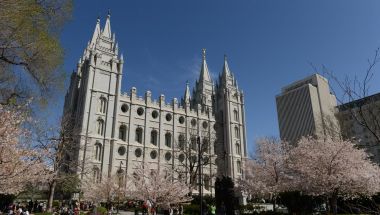Utah knocks Bible Belt off top spot in US churchgoing (thanks to Mormons)

Utah has topped a Gallup survey as the US state with the highest incidence of churchgoing – though the large number of Mormons in the state skews the figures.
Slightly more than half of Utah residents – 51 per cent – say they attend religious services every week, more than any other state in the union. The state has a Mormon population of 59 per cent, a group with the highest religious service attendance of any major US religious group.
Churchgoing is lowest in the New England states, with five of the six in the bottom 10. Only 17 per cent attend in Vermont.
Outside Utah, attendance is highest in the traditional Bible Belt Southern states of Mississippi, Alabama, Louisiana and Arkansas, with 45 to 47 per cent reporting weekly attendance.
The poll shows reported attendance at places of worship – defined as a church, synagogue or mosque – rather than an actual count, and editor-in-chief Frank Newport says that while it may not reflect precise numbers, it provides "an important measure of the way in which Americans view their personal, underlying religiosity". He says the poll "yields a good indicator of the percentage of each state's population that is highly religious, and for whom religion is likely to be a significant factor in their daily lives".
Ten of the 12 states with the highest self-reported religious service attendance are in the South, along with Utah and Oklahoma. The South has traditionally high levels of attendance among its black and Protestant populations.
Newport cites President Obama's speech at a recent National Prayer Breakfast in which he said that "The United States is one of the most religious countries in the world – far more religious than most Western developed countries." However, he notes: "This is certainly true as far as the nation's average religiosity is concerned, but the fact remains that within the US there are stark geographic differences in religiosity. In some states of the union – Utah and Southern states – roughly half of residents report attending religious services weekly, while in others – mostly in the Northeast and the West – a fourth or less of residents attend weekly."
He notes that church attendance is related to Americans' views on life, culture, society in general and politics. In most segments of society – blacks being the exception – those who are the most religious are most likely to be Republican voters.
Newport also says that churchgoing has a social value: "Church attendance also provides ties that bind members to their communities, and research shows that at the individual level, those who are most religious have higher well-being than those who are less religious."
There is, he says, "no definitive answer as to why residents in a state like Mississippi are so likely to be in church on Sundays, while residents in a state like Vermont are so unlikely".











